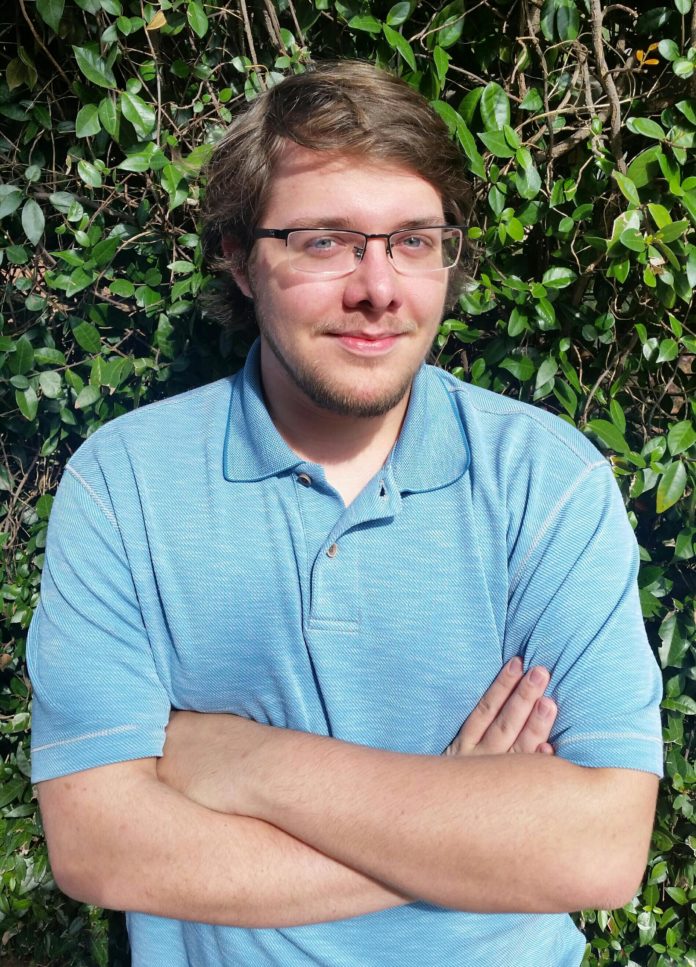By Matthew Muir | Contributor
If you had told me four years ago that I’d be attending Baylor University, I would have said you were crazy. It had nothing to do with sports teams, or what schools my parents went to; it’s deeper than that. Going to Baylor would run contrary to who I knew myself to be — an atheist.
I was raised in a house where religion was never discussed, so I wasn’t exposed to it at the same young age most people at Baylor were. My dad is nonreligious, and I still don’t really know what my mom believes. By the time I learned what religion was, I already had a decent understanding of how the world worked. In my view, religion relied on getting five from adding two and two, and it was easier for me to believe the math was wrong than to justify why a piece was missing.
In other words, it always seemed more logical to me that there was no higher power at all.
This belief, or lack of belief, always put me in awkward situations. I went to high school in Robinson, a small town a few miles south of campus. Many people there were accepting, some of my friends even shared my views, but it’s hard not to be the outsider when Christianity is so deeply woven into the local culture. Well-intentioned prayers before band competitions left me awkwardly staring at the ground, and it wasn’t uncommon for me to explain my views to someone only to hear “I’ll pray for you” or “bless your heart” as a response.
Baylor was on my list of colleges for a few reasons: It’s a great school, my ACT score was high enough for a scholarship, and being close to home meant I’d still be around many of my friends. But there were other schools that fit what I was looking for, and the promise of a “Christian education” was a turn-off. I still don’t know exactly what made me decide to go here.
My first Baylor experience was Line Camp, and it exemplified everything that I would come to expect from Baylor. Everyone was friendly, and I could not have felt more welcome. Each day was a blast, and to top it all off, my group won Sing (Totally not bragging, just saying.).
But that feeling of being an outsider still crept in. The trip to Independence was a reminder that religion would be inescapable. Standing in rows with all of the other camp attendees as seemingly everyone else sang along to hymns and other Christian music, all I could do was awkwardly glance around waiting for it to be over. It’s my only uncomfortable memory from Line Camp, but it was enough to make me second guess my decision to come to Baylor.
That doubt persisted into my first year. In a way, I already knew what to expect: two semesters of Chapel and a semester each of Christian Scriptures and Christian Heritage. What I didn’t know was what those classes would be like. I’d heard from older students that Scriptures and Heritage would feel like history classes instead of sermons, but that was from the perspective of Christians.
Thankfully, my doubts proved unfounded. Christian Scriptures and Heritage both delivered on the promise of feeling like the history classes I’d excelled at in high school, and I was extremely impressed by the time and respect that was given to studying other religions towards the end of the semester in Christian heritage. Both classes helped me feel comfortable at Baylor.
Admittedly, chapel was awkward, even uncomfortable at times, but it was just a twice-weekly inconvenience. It was easy enough to sit back, zone out and continue with my day after 50 minutes. Days when we had guest speakers or musical performances even managed to hold my interest.
Classes in other subjects aren’t free from religion, but it’s never interfered with academics. I’ve never felt unsafe contributing my views to class discussions. My geology professor even used theology to defend the theory of evolution during a lecture.
At times, the way professors have woven their own Christian perspectives into class has felt beneficial. During a mass communications lecture on advertising, the professor took a minute to talk about how advertising contributes to anorexia and bulimia, getting choked up as he told 200 students that he believed that God had made them perfect. Three semesters at Baylor, and no moment has better shown how Baylor handles Christianity: as a way to include, not exclude.
There are still times when Baylor’s religious focus makes me feel like an outsider, but those are rare. I always feel welcome and I never feel like my beliefs aren’t respected. My decision to come to Baylor may have made no sense, but I don’t regret it.
Matthew is a sophomore political science major from Robinson.




